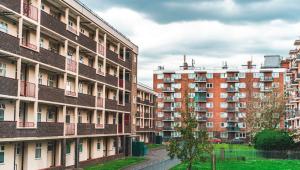14 December 2001
Statistics published on December 11 show that, in the year to September 2001, the number of households in bed and breakfast in England rose by 2,390 (24%) to 12,290. There was an increase of 950 households (8%) between June and September 2001.
Last week, the government applauded itself for cutting the number of rough sleepers by 1,318 to 532 in three years. But this week's figures suggest that some people are being moved from the streets to temporary accommodation with little hope of a permanent home.
Housing minister Lord Falconer admitted the situation was unacceptable, and promised that the new homelessness directorate, also unveiled last week, would tackle the underlying causes.
'I am very concerned with the upward trends highlighted in the latest homelessness statistics. Following the success in substantially reducing the number of people sleeping rough, the government is determined to deal with the wider issues of homelessness,' he said.
The minister blamed a shortage of social housing and the poor condition of other stock for the fact that so many local authorities are being forced to place families in bed and breakfast.
The number of homeless households in hostels (including women's refuges) at the end of September was down by 90, compared with one year ago, to 10,420.
The government figures emerged just 24 hours after a report by the New Policy Institute and the Joseph Rowntree Foundation revealed that the number of households in temporary accommodation has almost doubled since Labour came to power four years ago.
According to Monitoring poverty and social exclusion, the numbers living in temporary accommodation in England, Scotland and Wales rose from 45,000 to 80,000 between 1997 and 2001.
Peter Kenway, a co-director at the New Policy Institute, said the homeless situation was 'of particular concern' when the general condition of housing in the UK was improving, with less overcrowding and fewer homes without electricity compared with the mid-1990s.
PFdec2001


















